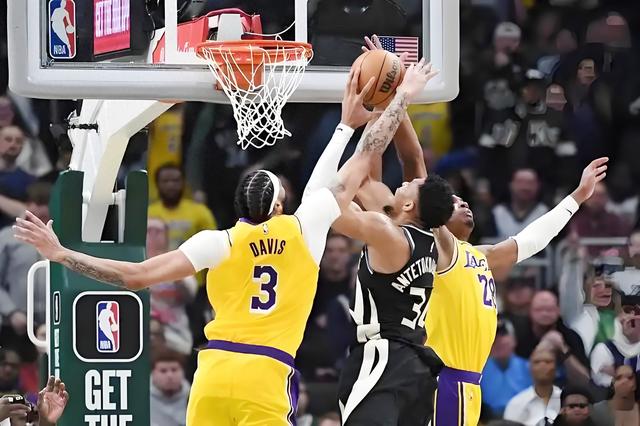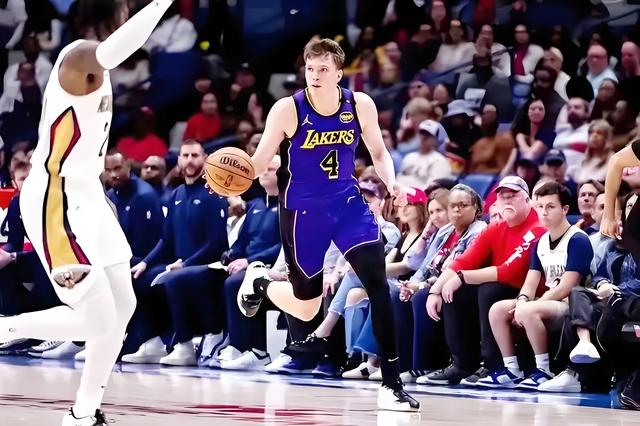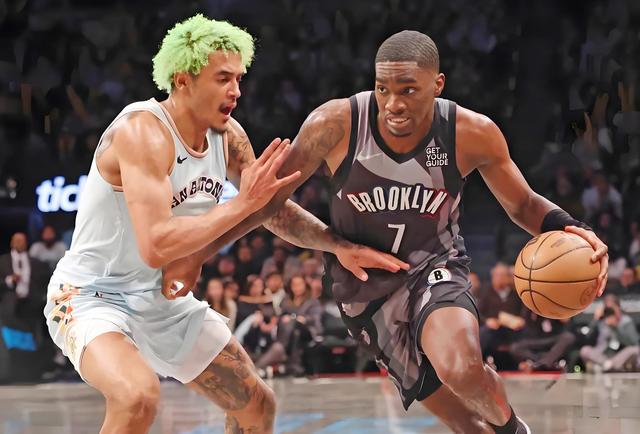This season, the Lakers' bench averages 24.8 points per game, which is only better than the Knicks' 20.3 points in the league. The lack of offensive firepower from the bench is largely due to the strong offensive performance of the starters, who average 87.2 points per game, second only to the Knicks, Nuggets, Celtics, and Kings.
How can the Lakers improve their bench scoring?
Currently, the best solution would be to move Reeves back to the bench. On one hand, Reeves can handle the ball and organize the offense; on the other hand, last season when he played off the bench, the Lakers' bench averaged more points than strong teams like the Nuggets, Timberwolves, and Celtics.

However, with Russell being traded, it's highly unlikely that Reeves will return to the bench.
Point One: Development. In the last two games against the Cavaliers and Trail Blazers, Reeves averaged 70 passes, leading the team by a wide margin. It's clear that the Lakers management wants to groom him as the main playmaker. Of course, his average of 10.5 assists in the last two games also shows a certain level of versatility.
Point Two: James. With Russell gone and Reeves potentially moving back to the bench, almost all the passing and controlling pressure would fall on James. If he were five years younger, it wouldn't be a problem, but at 40 years old, too much ball handling would definitely be detrimental to conserving energy.

When it comes to the Lakers' bench scoring, Knickert is a good choice. Although there are issues with inconsistency, if he's feeling it during a game, scoring 12+ points shouldn't be a problem. The downside is that Knickert lacks the ability to link up plays. In other words, he's more of an attacker and not a game controller.
Looking at Vincent's NBA career average of 2.1 assists, he does possess some playmaking ability, but the issue is that he's too "fragile." As for Reddish, Hayes, or future returning players like Vanderbilt and Wood, they are simply functional players with single characteristics.
However, in the trade with the Nets, the Lakers not only acquired Finney-Smith but also Shake Milton. Regarding Milton's characteristics, we can understand them as follows:

First, playmaking. Judging from his NBA career average of 2.5 assists, Milton has playmaking abilities compared to general backcourt players.
Second, offense. In his 331 NBA games so far, Milton has a two-point assisted rate of 41.0%, indicating that he has some independent offensive capabilities. Additionally, his true shooting percentage of 55.3% shows efficiency.
In summary, offensively, Milton is all about "banging shots." He can handle the ball to a certain extent relative to the current Lakers bench players. Based on Milton's offensive and playmaking features, I find this reinforcement by the Lakers quite interesting.

Reason One: Main subject of the trade. Frankly speaking, the main subject of the trade between the Lakers and the Nets revolves around Russell and Finney-Smith. In other words, Milton is just a "sidekick."
Reason Two: Tactical value. At this stage, among the Lakers' bench players who can handle the ball and have some playmaking abilities, it seems that only Milton can excel in both areas. This无形中 enriches the team's tactical diversity.
In conclusion, the "interesting" aspect is that what was originally considered a sidekick turned out to have tactical value for the Lakers. Looking at it from the side, the Lakers didn't lose out in this trade—provided the player performs up to par.